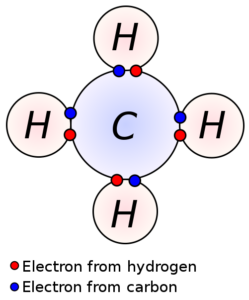 I’ve been an advocate of science for a long time, but I also recognize that science proper has become ScienceTM… an idolized science that Francis Bacon would have condemned… did condemn. More than that, this science has become a tool for the application of social pain.
I’ve been an advocate of science for a long time, but I also recognize that science proper has become ScienceTM… an idolized science that Francis Bacon would have condemned… did condemn. More than that, this science has become a tool for the application of social pain.
And so I’m going to explain, briefly, how this happened. But before I do, I want you to understand what this idolatry I speak of really is. So, please consider this slowly:
Whenever you hold something above critical examination, you are holding it above reality and are placing it as a god.
If you reflexively rebuff all questioning of your beloved idea, you have turned it into an idol.
So, idolatry is quite common in the human species. But it’s also deeply corrosive.
How It Happened
Science was turned into an idol by a historically visible process. We covered this more properly in our newsletter on Darkness From The Enlightenment, but I’ll give you a brief overview:
The Enlightenment, while critical for the rise of scientifically derived knowledge, also had a dark side, particularly after 1750. It was then that the Enlightenment turned from being for things, to being against things. This change imbued the Enlightenment with the dark personalities of writers like Thomas Hobbes, and it became a tool for tearing down one’s enemies. By it, intellectuals helped rulers capture the legitimacy which was previously held by the Catholic church, and at the same time secured a legally privileged position for themselves.
Nowhere was this strain of intellectual demolition more glaring than in the French Revolution, which was more or less the last stage of the Enlightenment. I’ll spare you details, but it’s worth pointing out that movements majoring on tearing things down, and especially movements built around evil enemies who must be defeated, are the movements which become murderous.
What Science Really Is
Science is a process, not a database of approved knowledge. And it is very certainly not some set of pronouncements from on high.
Science is a careful process of finding errors, and by it defining durable, reusable facts.
When a well-defined idea passes through this process without being shown false, we accept it as a valid theory, even though it will… and must always… remain open to revision and even to rejection.
Science, then, is the sworn enemy of authority.
To Put It Bluntly
It has been horrifying to watch the supposed arbiters of science attacking whoever fails to obey their employers. They have partnered in the purposeful application of social pain, to secure the unthinking compliance of millions of humans, whom they treated as ignorant beasts.
To put it bluntly, the public scientists left off convincing and turned to thuggery, using their lab coats and their expensive credentials as tools.
The Solution
The solution to this is to end the partnership of science and politics. It was always a sellout arrangement, and we’ve recently seen how such things end: We’re back to 1619 (pre-Bacon) and the reign of authority over inquiry.
All of us who care about science – who care about this careful process of isolating durable and reusable facts – must return to the profligate use of our old motto:
Nullius in verba – Take nobody’s word for it!
**
Paul Rosenberg
freemansperspective.com
